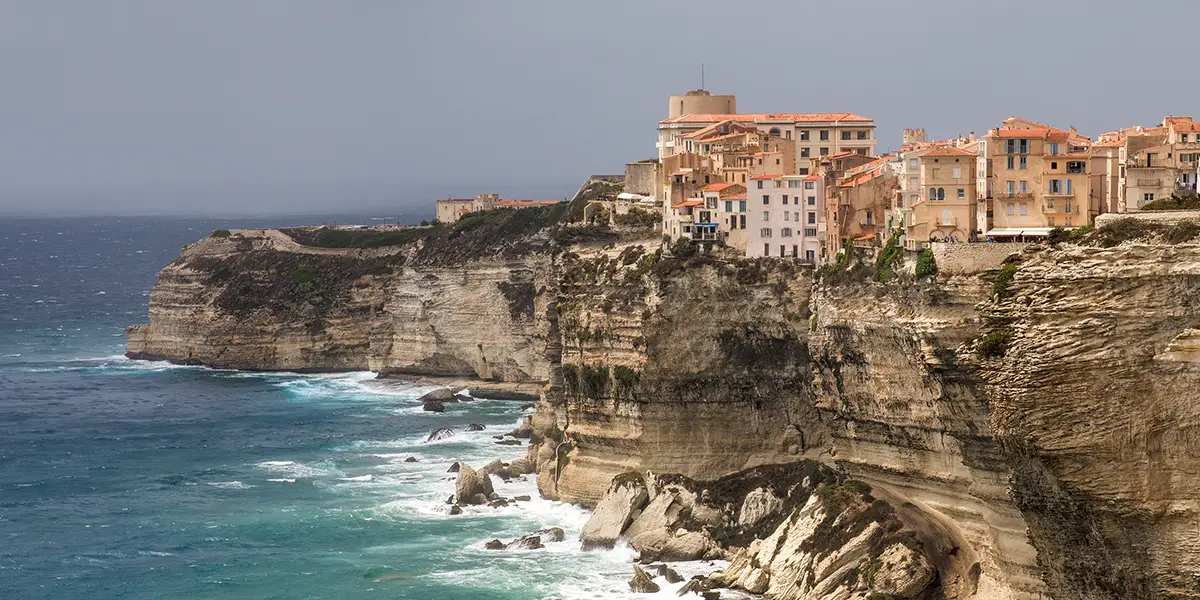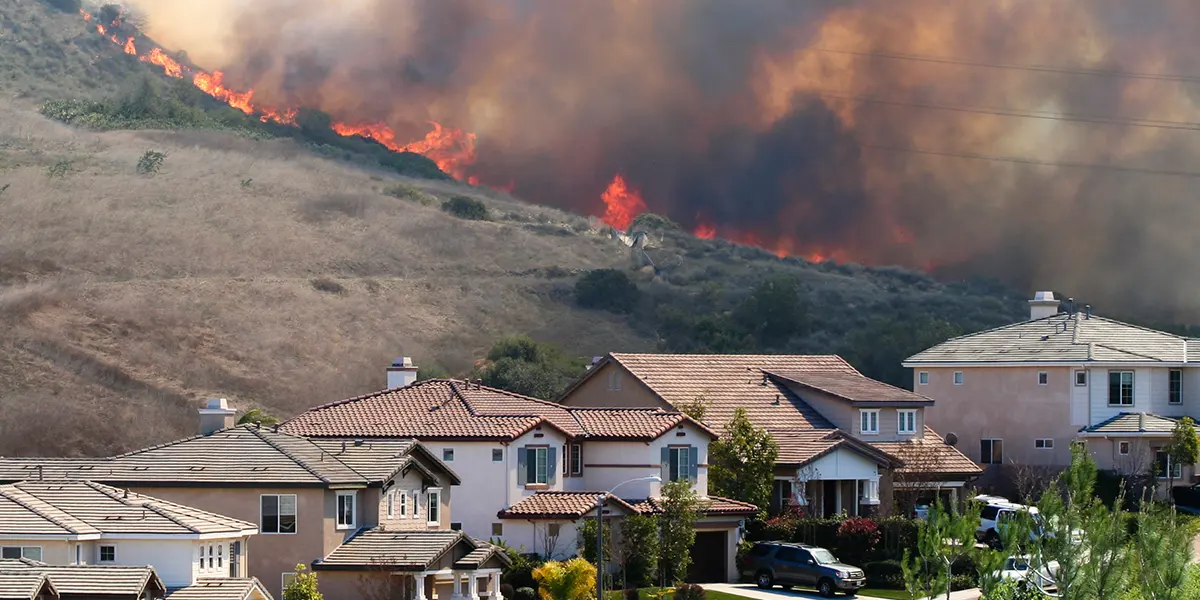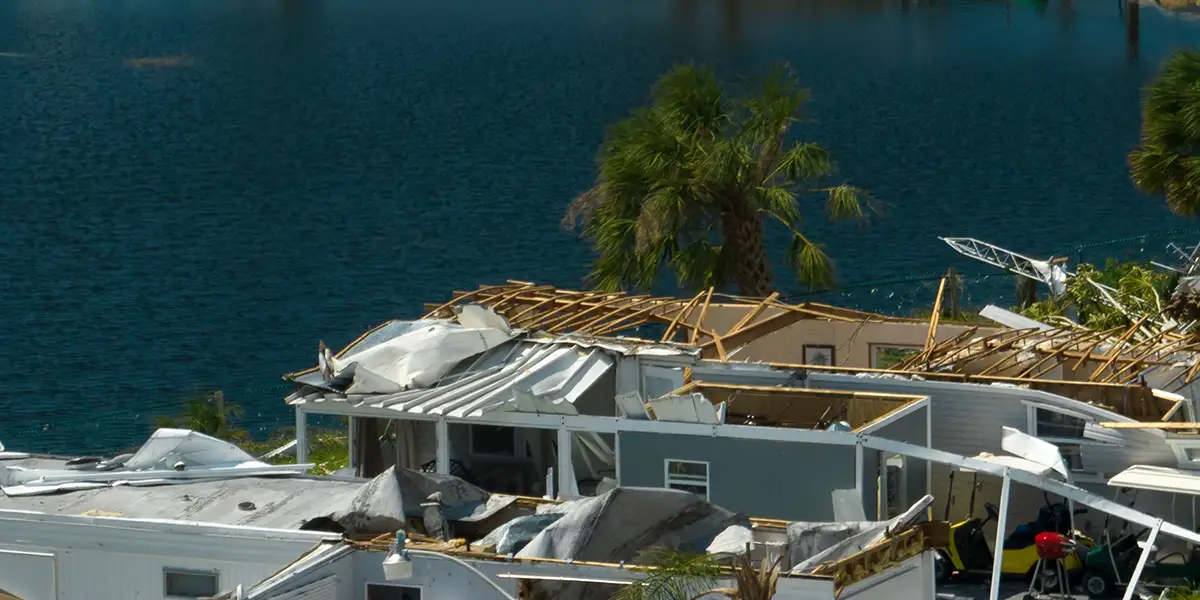We cannot ignore the undeniable role of climate change in increasing the aridity of 667 wildfires that have ravaged Greece, which has intensified the infernos of Greece during a 15-day heatwave, marking the hottest month ever recorded in global history.
Greek Prime Minister Kyriakos Mitsotakis's remarks about the wildfires are especially poignant, exemplifying that “The climate crisis is already here” and “We are at war”.
The extreme heat has been so severe that it forced the closure of the ancient Acropolis, a symbol of Greece's cultural heritage, overlooking the capital city of Athens. These wildfires are a grim recurrence of the devastation Greece experienced in 2021. This year's wildfires have been catastrophic, claiming the lives of over 5 people and consuming an alarming 50,000 hectares of forest and vegetation.
The relentless blazes have forced the displacement of 20,000 people, leading to the largest evacuation in Greece's history, affecting tourists and residents on the Greek islands of Crete, Evia, and Rhodes. While wildfires are still raging on these islands, the fires are somewhat under control now, emergency response teams remain in critical hotspots as strong winds remain a threat, with 460 firefighters still deployed.
Fires have also erupted across the Mediterranean in Croatia, Italy, and Portugal this week, and extreme heat in Algeria has left landscapes tinder-dry, resulting in 34 fatalities from blazes.
The Genesis of Wildfires
Since January 2023, a staggering 260,000 hectares have been engulfed in flames within the EU alone. The toll on human lives has been profound, with over 120,000 people directly affected by the wildfires in Greece, Italy, Algeria, and Tunisia.
Greece, in particular, has borne the brunt of scorching temperatures, parched vegetation, and relentless winds, creating a perfect storm for the ignition and rapid spread of wildfires.
These blazes have mercilessly ravaged the country for more than ten days, posing an ongoing threat to heavily populated areas and beloved tourist destinations like the islands of Rhodes and Corfu and the densely inhabited coastlines near Athens.
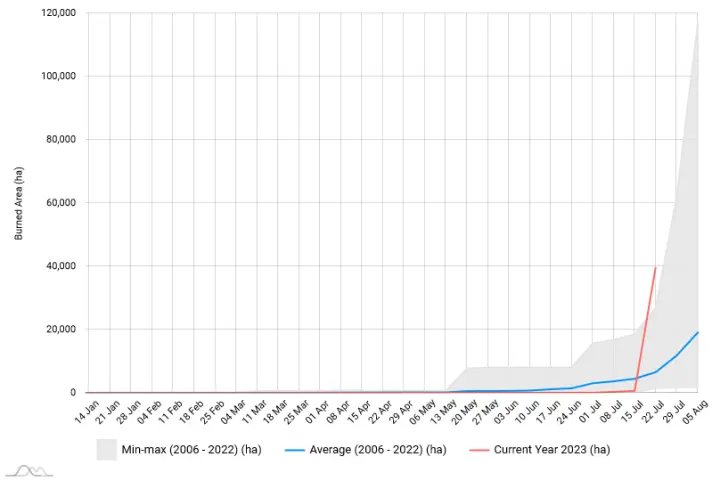
The scale of destruction inflicted by wildfires in Greece has been unprecedented and recent statistics paint a dire picture.
On 15th July, the total area burned in Greece since the start of the year amounted to less than 1,000 hectares. Shockingly, a mere 12 days later, on 27th July, this figure skyrocketed to over 50,000 hectares, equivalent to approximately 95,000 football pitches. Such an increase is alarming when compared to the average burnt area of about 7,000 hectares during the same period between 2006 and 2022.
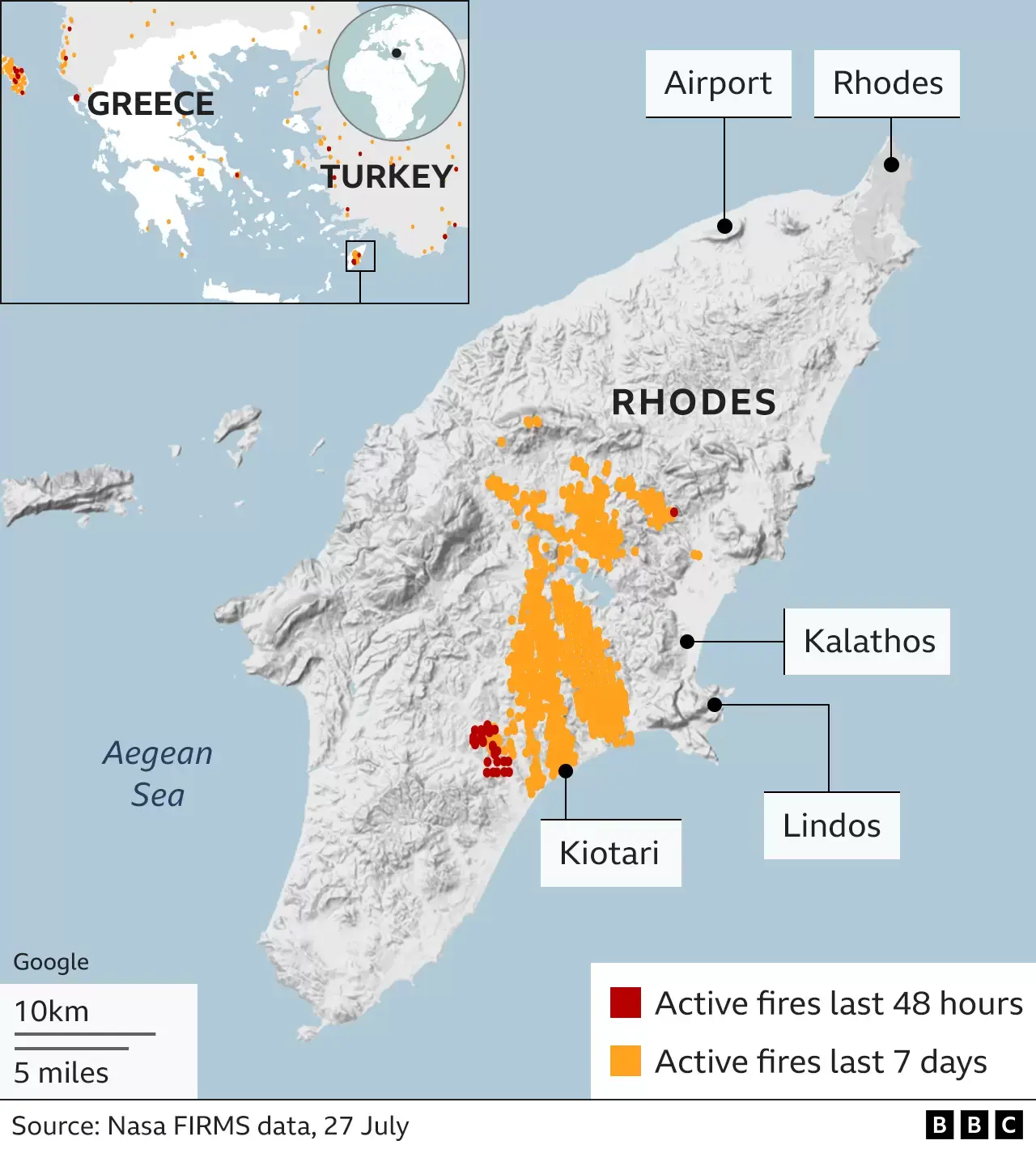
Wildfires are increasing in frequency across the globe due to profound climate impacts of rising temperatures and soil-water evaporation as well as both direct and indirect actions, such as land-use changes linked to agriculture, deforestation, and urban development.
In turn, these activities are amplifying the frequency and intensity of fire-prone weather conditions. Wildfires are expected to become more frequent and intense globally, with extreme fires predicted to increase by approximately 14% by 2030 and a staggering 30% by the close of 2050.
There are multiple dynamics to changing fire risk, with areas that previously very rarely experienced fire (for example the Arctic Circle) are now becoming fire prone, and some fire prone areas are seeing an increasing risk of intense and uncontrollable wildfires."
James Brennan, Director of Climate Risk Modelling & R&D at Climate X.
The impact of wildfires extends beyond the immediate devastation.
The environment, wildlife, and precious ecosystems are left in ruins, posing long-term challenges for regeneration and recovery. While wildfires are part of the natural aspect of many Mediterranean landscapes, land use and fire weather changes have made more extensive and intense fires more likely.
Rural abandonment and production model changes have led to unfavourable vegetation development in Mediterranean regions more prone to uncontrolled wildfires. This has increased wildfire risks especially in urban areas.
Large fuel-loaded regions with high crown fire susceptibility pose a significant threat. This dangerous situation may repeat in other urbanising and abandoned areas, invigorated by climate change; the Mediterranean region will experience rising temperatures in its East and West, coupled with increased drought and concentrated precipitation in other parts of the area. However, recent fires' unprecedented scale and intensity raise urgent concerns and highlight the need for enhanced wildfire management strategies and climate change mitigation efforts.
In many mediterranean areas a combination of de-urbanisation of semi-rural areas and a reduction in fire risk management is combining with trends of worsening fire weather."
James Brennan, Director of Climate Risk Modelling & R&D at Climate X.
The tragic events in Greece are a poignant reminder of the pressing need to strengthen measures for understanding future fire risks in a changing climate.
In this critical endeavour, Climate X's Spectra analytical platform emerges as a game-changer, offering unparalleled capabilities in preparing organisations for climate risks posed by wildfires, as shown in figure 3.
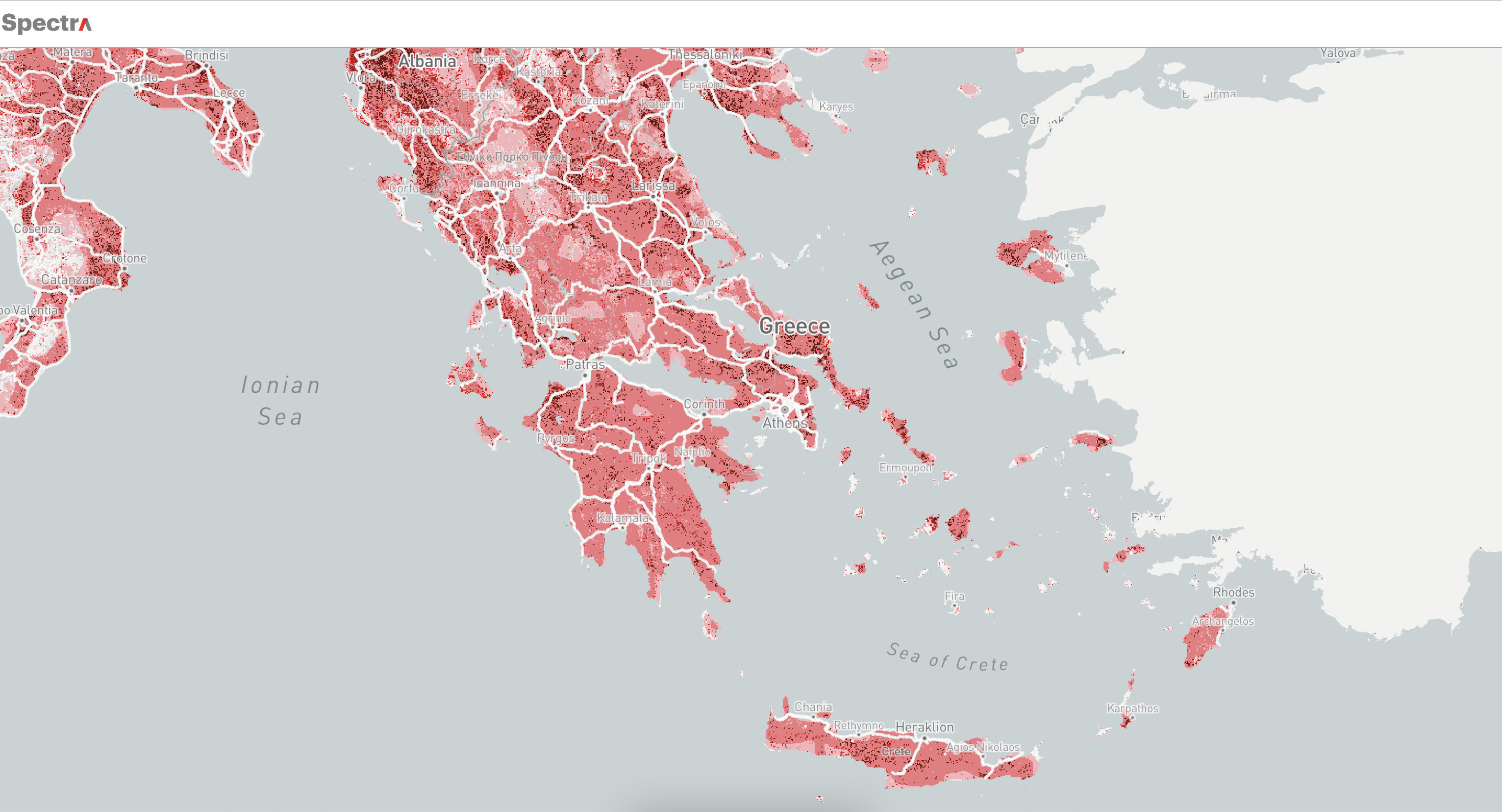
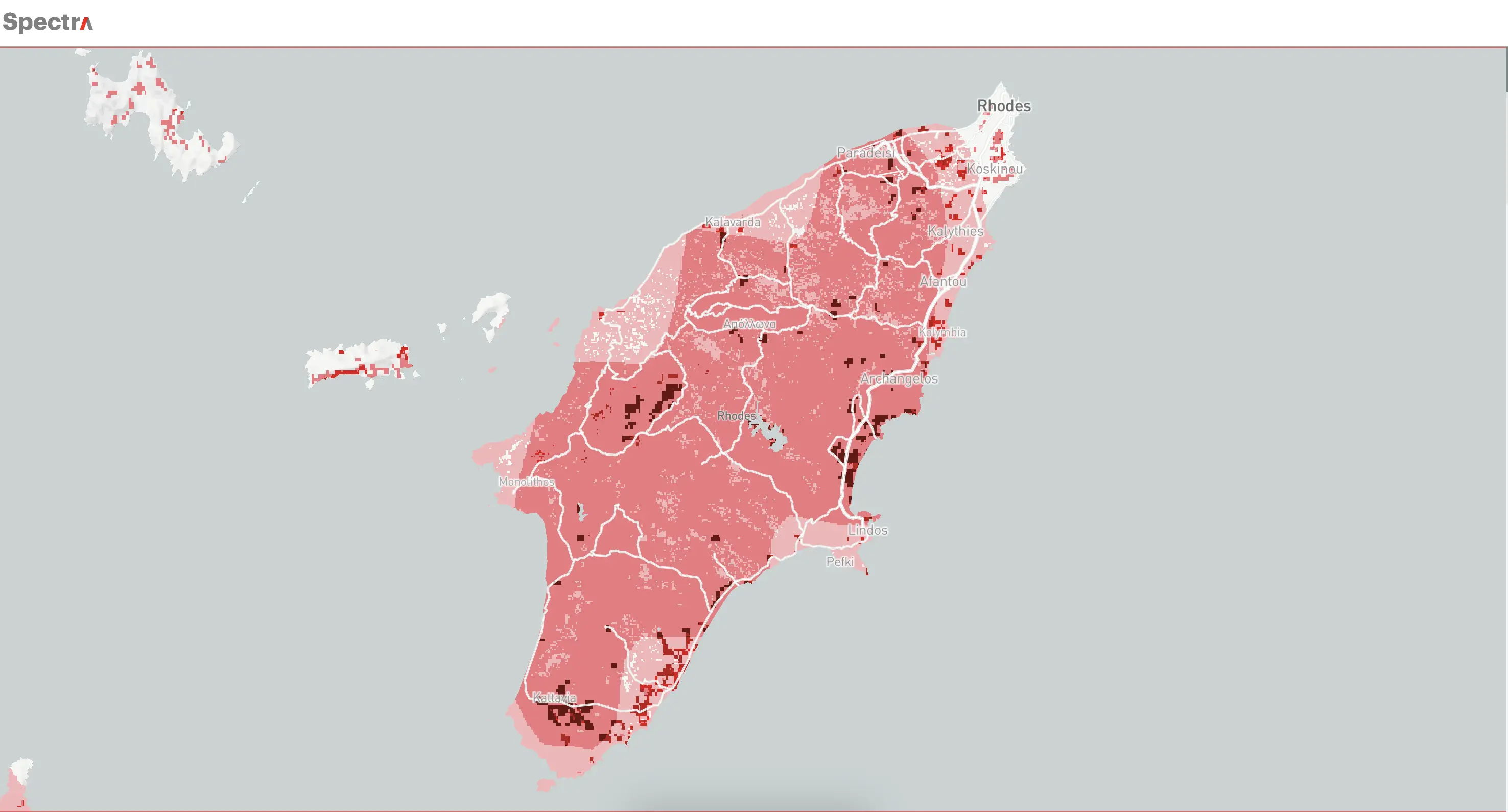
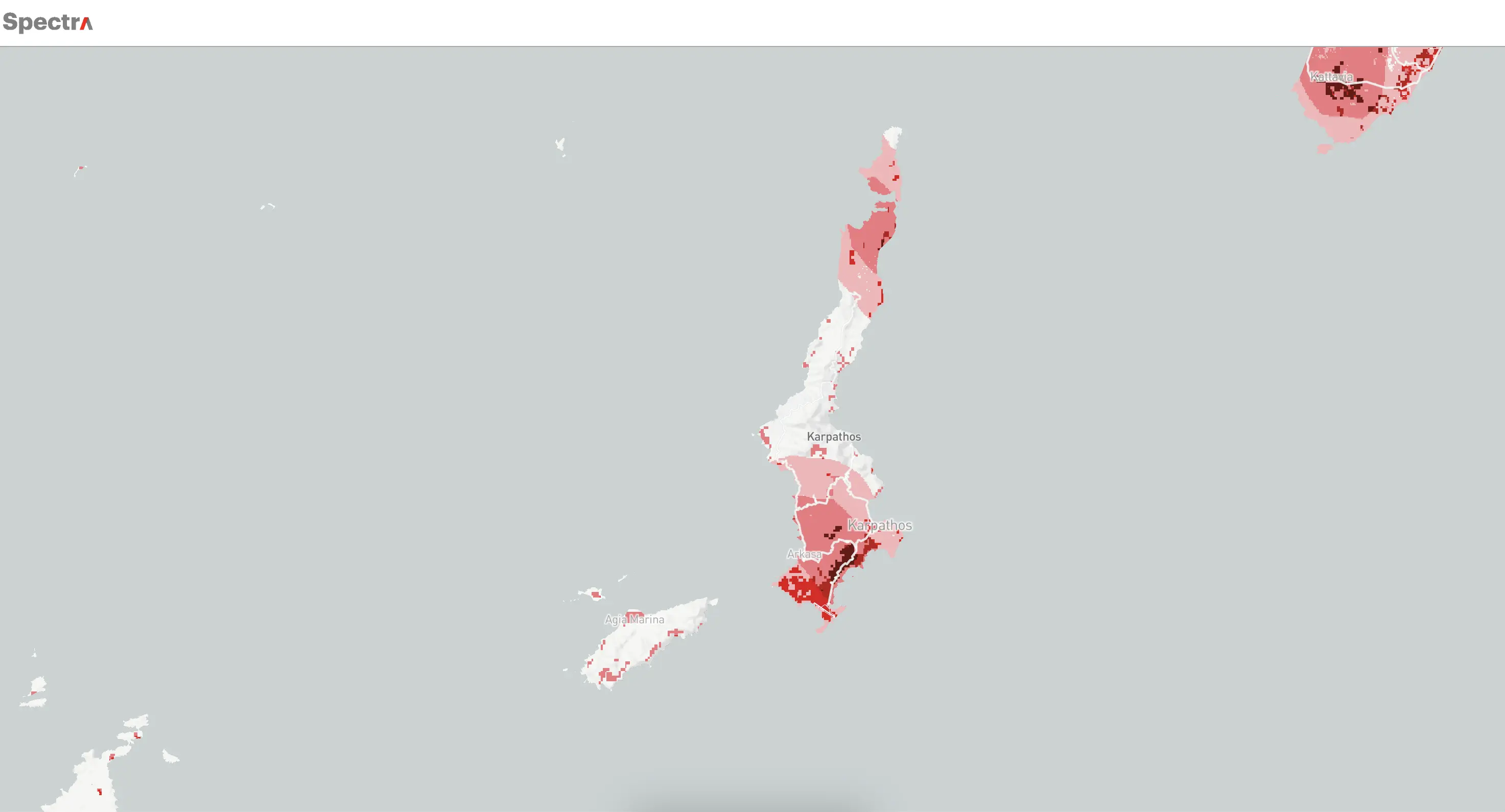
Climate X’s future fire risk project takes into account the local susceptibility of areas to fire (vegetation, fuel-loading biomass, land use and rural-urban interface) with future changes in fire weather conditions to provide estimates of future fire risk at 90m up to 2100 and under different RCP (Representative Concentration Pathway) scenarios. Areas in dark red represent areas of higher fire risk.
Forced to Change: Tourism
Greece's picturesque summer holiday destination has always been a tourist favourite.
However, this year's devastating wildfires trapped over 20,000 tourists, causing mass panic and forcing them to flee the island, leaving behind passports and belongings. Many had to seek refuge in sports facilities, conference centres, hotels, and public buildings to escape the imminent danger.
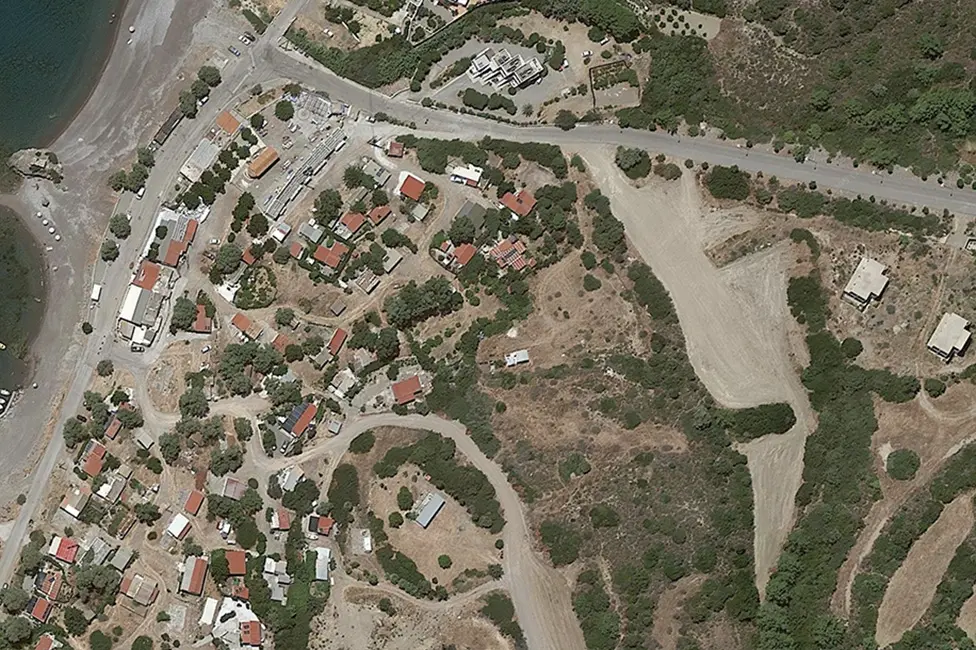
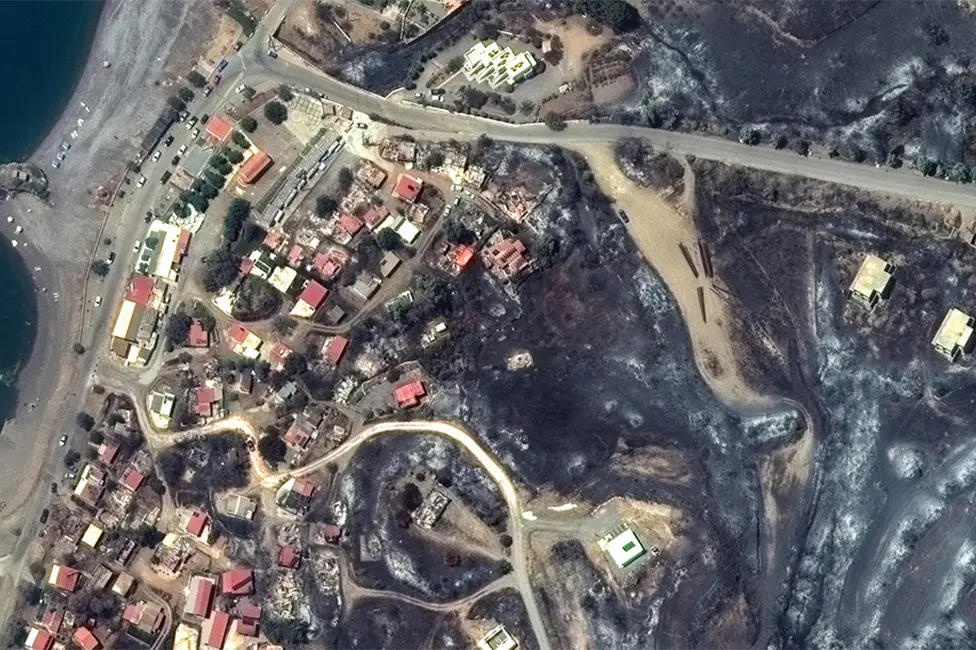
The tourist industry is projected to reach $2.3 billion this year, with an industry that contributes 20% to Greece’s GDP. But climate change risks pulling this apart. If this continues into August and September, Greece has the potential to lose, at a minimum, between 304,000 and 532,000 nights of tourists staying in the country, impacting locations like Rhodes and Crete, heavily reliant on the tourist industry.
Vice-president of the Greek Tourism Confederation, Panagiotis Tokouzis, said despairingly: “It’s raining cancellations.”
The pressure on Greece’s tourist industry is an example of how climate change is set to make the tourist-friendly weather in some places unrecognisable. This shift will have profound consequences on the $2.8 trillion contribution to the regional EU economy in 2022 that could strike a profound blow to southern European countries. Climate change is increasingly forcing Europe’s tourism industry to change, a substantial change.
The challenges posed by climate change in the tourism industry cannot be overlooked, and industry insiders acknowledge the necessity for a comprehensive response. However, some parts of the sector are still in the early stages of understanding and adapting to the new reality.
Tom Jenkins, the CEO of the European Tourism Association, believes that the industry may not immediately alter long-term commercial decisions based on current events this summer.
All strategies will have to be reviewed, the climate crisis could cost as much as €700bn (£600bn) to Greece."
Stated Prof Christos Zerefos, Greece’s leading expert on atmospheric physics.
It is unknown how prepared Greece is for future climate-related disasters, with enormous pressure to prevent further damage to Greece’s tourist economy. Furthermore, the frequency of extreme events in southern Europe due to climate change may push travellers to seek destinations in the northern part of the continent, impacting the growth trajectory of Europe's tourism sector, which is estimated to grow at an average annual rate of 3.3% up to 2032.
Ramifications of the wildfires extend beyond tourism, affecting real estate, insurance, and even the Greek military due to an unfortunate detonation at an ammunition storage facility on an airbase in Nea Anchialos.
As Greece grapples with the wildfires, it becomes increasingly evident that preventive measures and rejuvenating devastated forest ecosystems are crucial aspects to consider. It is still too early to quantify the exact losses for Greece and their implications for industries. However, it is essential to highlight that Greece has limited insurance coverage for natural disasters in residences, business premises, and facilities, showcasing the potential negative extent of the wildfires' damage to Greece this year.
In turn, the situation in Greece underscores the urgent need for global action to address the climate crisis, as the repercussions are increasingly affecting critical sectors like tourism, the local economy, and even national security. Timely preventive measures and sustainable strategies are imperative to protect against such devastating events in the future.
Prof Christos Zerefos, Greece’s leading expert on atmospheric physics, warned that the situation would worsen yearly. Stating, “All strategies will have to be reviewed (because of) the climate crisis,” as for Greece, the “climate crisis could cost as much as €700bn (£600bn), both in terms of preventive measures and adjusting to the new reality, and emphasised the importance to the country of rejuvenating devastated forest ecosystems.”
Taking Action
The wildfires, fueled by extreme heat and dry conditions, have left a trail of devastation, claiming lives, displacing thousands, and causing irreversible harm to the environment and economy of Greece.
The urgency to enhance wildfire management and climate change mitigation efforts cannot be overstated, as these events will likely worsen in the coming years.
The tourism industry, a vital pillar of Greece's economy, faces significant challenges due to the changing climate, making adaptation and preparedness measures imperative. These wildfires are a stark reminder of the global need for concerted action by industries to combat the climate crisis and protect themselves from climate-related events.
Building resilience and sustainable strategies are essential to secure a brighter future amid these trying times.
Sources
- World Meteorological Organization (2023) Heatwaves, wildfires mark summer of extremes. https://public.wmo.int/en/media/news/heatwaves-wildfires-mark-summer-of-extremes
- Asfalisinet (2023) What insured damages are the insurance companies expecting from the catastrophic fires of the last few days.
- BBC (2023) Greek fires at Nea Anchialos prompt blasts forcing F-16s to evacuate base. https://www.bbc.com/news/world-europe-66334787
- Copernicus (2023) EFFIS Wildfire Risk Viewer. https://effis.jrc.ec.europa.eu/apps/fire.risk.viewer/
- DW (2023) Greece fires under control, but danger remains. https://www.dw.com/en/greece-fires-under-control-but-danger-remains/a-66379040
- European Commission (2023) Wildfires in the Mediterranean: monitoring the impact, helping the response. https://joint-research-centre.ec.europa.eu/jrc-news-and-updates/wildfires-mediterranean-monitoring-impact-helping-response-2023-07-28_en
- FAO (2023) Wildfire Prevention in the Mediterranean. https://www.fao.org/forestry/49223-06791969d1427714a896b8faeee2aa501.pdf
- The Guardian (2023) Greece wildfires under control but strong winds still a threat, say officials. https://www.theguardian.com/world/2023/jul/29/greece-wildfires-under-control-but-strong-winds-still-a-threat-say-officials
- The Guardian (2023) Southern Europe and north Africa count heavy cost of wildfires. https://www.theguardian.com/world/2023/jul/27/southern-europe-north-africa-count-heavy-cost-wildfires?CMP=twt_a-environment_b-gdneco
- The Guardian (2023) ‘Like a blowtorch’: Mediterranean on fire as blazes spread across nine countries. https://www.theguardian.com/environment/2023/jul/26/northern-hemisphere-heatwaves-mediterranean-fires-croatia-portugal
- Oxford Economics (2023) Heatwaves and headaches for Europe this summer. https://www.oxfordeconomics.com/resource/heatwaves-and-headaches-for-europe-this-summer/
- Sheikh Mansoor, Iqra Farooq, M. Mubashir Kachroo, Alaa El Din Mahmoud, Manal Fawzy, Simona Mariana Popescu, M.N. Alyemeni, Christian Sonne, Jorg Rinklebe, Parvaiz Ahmad, Elevation in wildfire frequencies with respect to the climate change, Journal of Environmental Management, Volume 301, 2022, 113769, ISSN 0301-4797, https://doi.org/10.1016/j.jenvman.2021.113769.
- Statista (2023) Travel & Tourism - Greece. https://www.statista.com/outlook/mmo/travel-tourism/greece
- The Strait Times (2023) Extreme weather is changing Europe’s tourism and the travel industry isn’t ready. https://www.straitstimes.com/world/europe/extreme-weather-is-changing-europe-s-tourism-its-travel-industry-isn-t-ready
- UNEP (2023) Spreading like Wildfire: The Rising Threat of Extraordinary Landscape Fires. https://www.unep.org/resources/report/spreading-wildfire-rising-threat-extraordinary-landscape-fires
- United Nations (2023) Hottest July ever signals ‘era of global boiling has arrived’ says UN chief. https://news.un.org/en/story/2023/07/1139162#:~:text=As%20wildfires%20raged%20across%20Southern,be%20the%20warmest%20on%20record.

